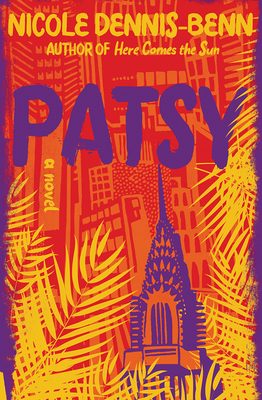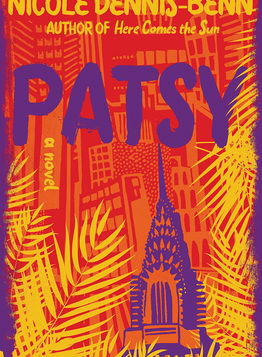 Patsy: A Novel
Patsy: A Novel
by Nicole Dennis-Benn
Liveright. 425 pages, $26.95
WHEN we first encounter the title character of Nicole Dennis-Benn’s intergenerational family saga, Patsy, she’s standing in line outside the U.S. embassy in Jamaica, dreaming of America. The year is 1998. The Reggae Boyz are playing in the World Cup in France. Patsy is 28 years old, and her daughter Tru is five. As the reader soon learns, America means more to Patsy than job opportunities and a chance to send money home. It’s a place where she can begin anew, reconnect with her childhood love Cecily, and (most importantly) shed the identity of “mother.” She leaves Tru with the latter’s father Roy and his family. From there, she flies to America, envisioning a future for herself in which she settles down with Cecily and embraces her queer identity.
This decision—to leave her daughter behind and ignore the fact that Cecily has a husband and son in the U.S. and has never indicated she would leave them for Patsy—has repercussions that no one in the novel, least of all Patsy, could anticipate. Dennis-Benn guides us through it all, tracing an arc from 1998 to Tru’s last year of high school. The chapters alternate between Patsy and Tru, transporting the reader back and forth from New York City to Pennyfield, Jamaica, as Patsy makes a life for herself in America and Tru gradually resigns herself to the fact that her mother is never coming back. Patsy calls once, early on, and then breaks off contact as her troubles mount. Due to the heavy initial focus on Patsy, Tru’s first chapters feel less consequential to readers than Patsy’s passionate reunion with and subsequent break-up with Cecily, whose husband catches them while Patsy is staying in the couple’s guestroom. The gravity of Tru’s story becomes apparent as her narrative uncouples from Patsy’s. Unbeknownst to all but the reader, mother and daughter simultaneously embark on journeys of self-discovery. After fumbling around in search of stable work following the fallout with Cecily, Patsy settles into a role as the nanny to a series of rich white New Yorkers. This stability allows her to reconcile with her demons, including childhood sexual abuse and a resultant miscarriage. Meanwhile, Tru attempts to earn her father’s love and in so doing discovers a love of soccer that shapes her entire adolescence and dovetails into her sexual awakening. Both mother and daughter end up defying Pennyfield’s gender rules and embracing their queer identities. For Patsy, this self-acceptance enables her to break through the long silence and face what she did to Tru. She makes many mistakes in attempting to reconnect with Tru—some much worse than others. As she explains to Tru in a letter, she “was too broken to appreciate” the miracle of her daughter, who was born after doctors said complications from Patsy’s miscarriage would prevent her from having children. It takes both Patsy and Tru many years to heal from the damage done to them and the pain they inflict on themselves, and this long journey is the novel’s great strength. Dennis-Benn traces their winding paths to happiness in exquisite detail, producing a novel as immersive as it is insightful._________________________________________________
Ruth Joffre is the author of the story collection Night Beast. She teaches at Hugo House in Seattle.





